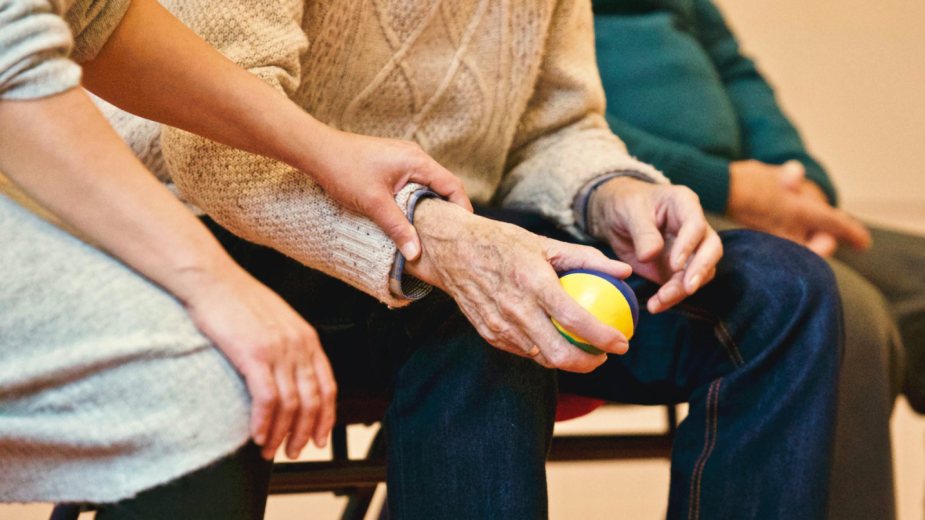Coping with Alzheimer’s: Early Detection Matters
November is designated as Alzheimer’s Awareness Month, drawing attention to the sixth leading cause of death in the United States.
Scientists are learning that changes in the brain are occurring decades before any real cognitive or memory problems present themselves. For most afflicted, symptoms often appear in the mid-60s. An estimated 5.5 million Americans age 65 or older have dementia caused by Alzheimer’s.
Although the brain and its function is exceedingly complex, according to the Alzheimer’s Association (Alz.org), there are 10 general warning signs and symptoms. Some of these signs can also be part of the aging process, so it’s best to see a physician if symptoms persist.
1. Memory loss that disrupts daily life. This is one of the most common signs of Alzheimer’s disease. Forgetting recently learned information and repeatedly asking the same questions over and over.
2. Challenges in planning or solving problems. Difficulty following a plan or working with numbers. Basic concentration to manage general household tasks is often impaired.
3. Difficulty completing familiar tasks. There may be an inability to create a basic grocery list or remember the rules to a favorite board game.
4. Confusion with time or place. Forgetting how he arrived at a particular destination. Losing track of dates and passages of time.
5. Trouble understanding visual images and spatial relationships. Vision problems leading to difficulty with balance or trouble reading. Driving may be impaired due to issues with judging distance and determining color or contrast.
6. New problems with words in speaking or writing. Stopping in the middle of a sentence with no idea how to continue is a cause for concern, as is the inability to follow or join a conversation.
7. Misplacing things and losing the ability to retrace steps. Chronically losing things with the inability to retrace one’s steps to find them. As the disease progresses, persons may become paranoid and accuse others of stealing.
8. Decreased or poor judgment. A lack of attention to self care or exercising poor judgment as it relates to fiscal responsibility.
9. Withdrawal from work or social activities. Because a person may have difficulty following conversations, he may no longer find interest in social gatherings or hobbies that used to be of interest.
10. Changes in mood and personality. A person may be irritable, suspicious, anxious, confused, depressed, fearful.
As with all diseases of the mind and body, early detection matters. It is vitally important to take the necessary steps to ensure a proper diagnosis and action plan to follow.
Once a diagnosis has been established, perhaps “home” is no longer a safe place for mom or dad or Aunt Betty. A memory care facility may be the best option for a loved one and for the family’s peace of mind.
Here are some factors to help you decide if a memory care community (nursing home or assisted living) is appropriate:
Safety is paramount. Your loved one must be safe in his or her environment. Have they wandered? If it has happened once, it is likely to happen again. Are they a fall risk? A fall can change everything and frequently precipitates a move to assisted living or skilled nursing facility. Are there stairs in the home that are becoming too difficult or unsafe? Would it be safer for them with one-level living, staff to monitor their whereabouts and activities to keep them occupied?
The second factor to consider is physical health. Do they have other health issues or a chronic illness? Are they able to get daily exercise? Have you noticed a weight change? What is their ability to manage their activities of daily living – eating, bathing, dressing, toileting, transferring (walking) and continence. Are they socially engaged or are they becoming more socially isolated? Do they see friends or family on regular basis? Have they given up driving or should they?
An additional factor you should consider if you are noticing that the person is experiencing more forgetfulness, confusion, episodes of aggression, sundowning or combativeness? Is their behavior becoming difficult to manage?
In health care, we talk a lot about “caregiving for the caregiver.” If you are the caregiver, are you able to get rest? Are you able to get respite from caregiving? Is the rest of your family feeling ignored? What support system do you have? Would moving your loved one to a memory care assisted living or skilled nursing community give you time needed for family or work?
Windsor House owns and operates skilled nursing communities with a separate, secure memory care unit. And the company operates two memory care assisted living communities: West Haven, located in Omni West Assisted Living in Austintown, and Armstrong Memory Care Assisted Living, the only dedicated memory care assisted living community in Trumbull County.
Windsor House Inc. is a family owned and operated health care provider that has been serving the Mahoning Valley for 60 years. The company owns and operates twelve nursing homes and five assisted living communities in Northeast Ohio and Western Pennsylvania. To learn more, visit WindsorHouseInc.com, or follow the company on Facebook, Twitter, YouTube and LinkedIn.
The Scoop on Senior Living is sponsored editorial content produced by Windsor House.
Copyright 2024 The Business Journal, Youngstown, Ohio.



